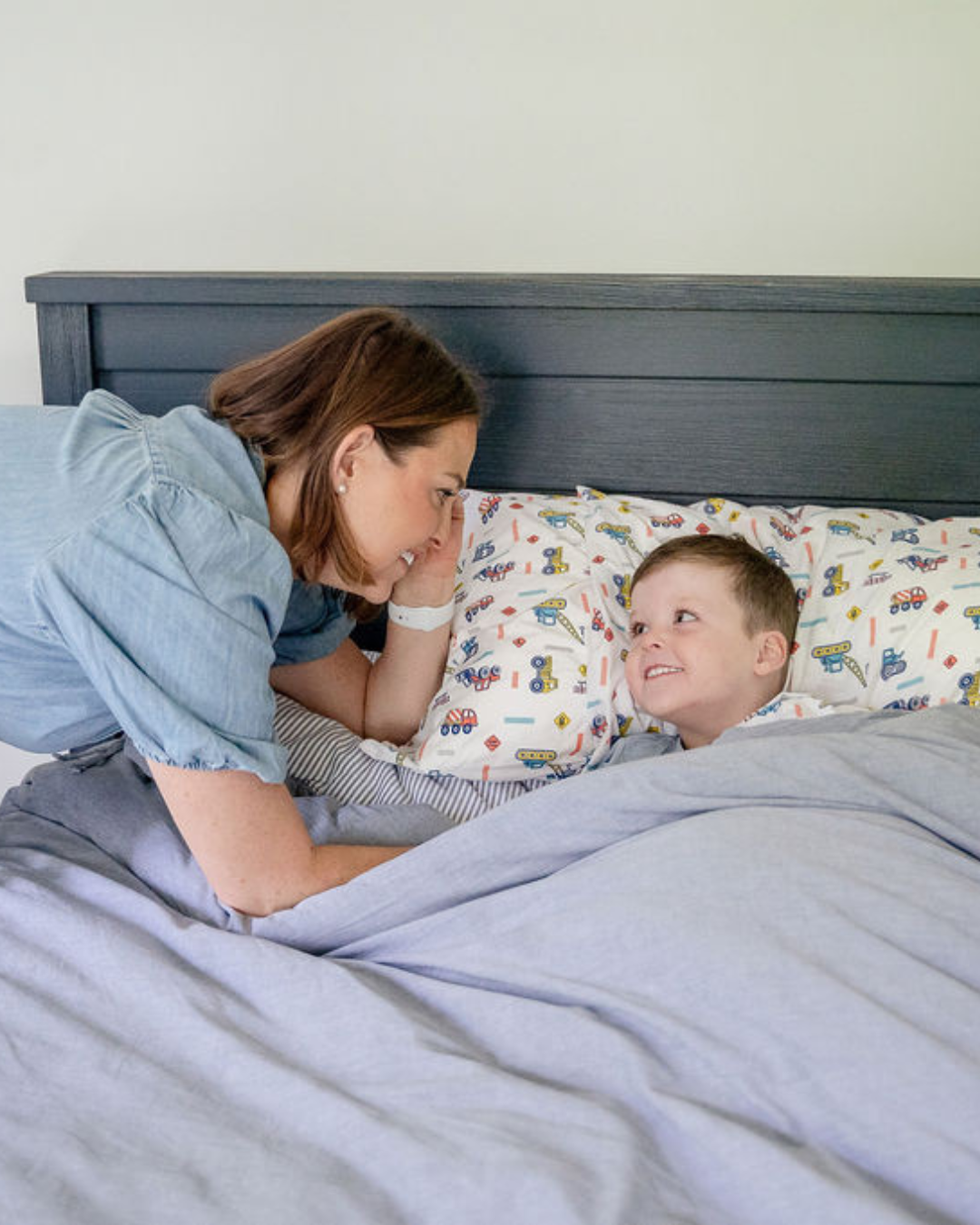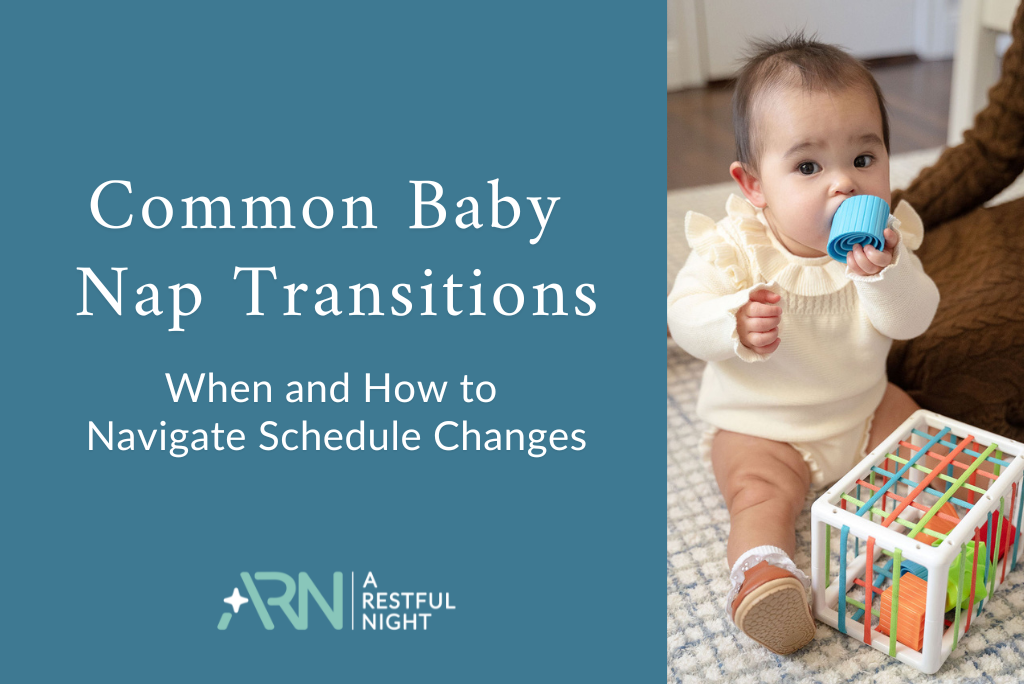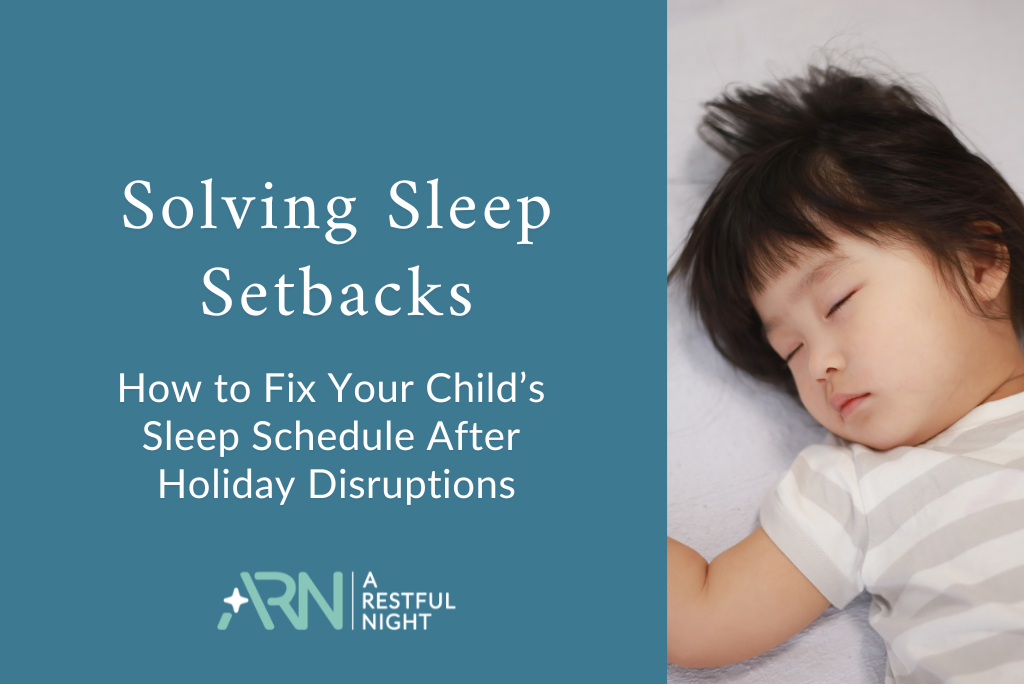Crib to Bed Transition: How to Know When Your Toddler Is Ready
Transitioning from crib to toddler bed is one of those milestone moments that can feel both exciting and nerve-wracking for parents. It marks a new level of independence for your child… and a new phase of bedtime boundaries. While some toddlers make the switch with ease, others may need more time and preparation.
So, how do you know when your toddler is ready for a big-kid bed?
Below, we’ll walk through everything you need to consider, from typical age ranges to readiness signs and timing to avoid.
How long do babies sleep in cribs?
Most children sleep in a crib until somewhere between 18 months and 3 years old, though every child is different. Some toddlers may be content in their crib longer, while others start trying to climb out earlier than expected.
Age and development matter
There’s no universal “expiration date” for the crib, but many sleep consultants (including myself) recommend waiting until closer to age 3, when kids have stronger sleep skills, better impulse control, and can understand and follow bedtime rules.
Safety is key
If your child is climbing out of the crib, it’s time to start planning the transition, regardless of age. Falling from a crib can be dangerous, so use this as a non-negotiable cue to consider a toddler bed.
When is the best time to transition to a toddler bed?
There’s no perfect moment, but generally, between 2.5 and 3.5 years old is an ideal window for most children. The best time is when your child shows signs of readiness and no major life changes are happening that could disrupt their routine.
Look for stable sleep habits
If your child is falling asleep independently, sleeping through the night, and waking up happy, they’re likely in a good place to handle the change.
Avoid transitions during big changes
Try to avoid switching to a toddler bed during times of upheaval, like a new sibling, potty training, or moving homes. Too much change at once can lead to bedtime battles and regressions.
What are the signs your child is ready for a toddler bed?
Not sure if your toddler is ready? There’s no one-size-fits-all answer, but there are several developmental signs and behaviors that can signal it’s time to consider the transition.
They’re physically outgrowing the crib
If your child is tall enough that the crib rails only reach their chest, or they’re frequently bumping into the sides, it may be time to give them more space. Most cribs have a height limit (usually around 35 inches), and once your child surpasses that or starts trying to hoist themselves over, safety becomes a real concern.
Crib feels cramped or confining
Your toddler is consistently hitting the weight or height limits
They can easily swing a leg over the rail
They ask for a big-kid bed
Some toddlers will straight-up ask for a bed, especially if they’ve seen older siblings, cousins, or friends sleep in one. If they’re showing curiosity or excitement about sleeping in a “real” bed, it’s a great opportunity to harness that enthusiasm and frame the transition as a reward or milestone.
They mention wanting a bed like a sibling
They show pride or excitement when you talk about the change
They exhibit good impulse control and ability to follow a sequence of steps or rules.
They can follow basic instructions
Toddlers who can follow 2–3 step directions are more likely to understand the expectations of sleeping in a bed, like staying under the covers, not getting out repeatedly, and waiting for a parent in the morning.
Can respond to simple bedtime routines like: “brush teeth, put on pajamas, pick a book”
Understand “stay in your bed until the light turns green” or similar cues
Can process simple cause-and-effect reasoning (“If I stay in bed, I get a sticker in the morning”)
They have strong sleep skills
Your toddler should be able to fall asleep and stay asleep independently. If they still rely on lots of parental help—like rocking, holding, or lying next to them—it’s best to work on those skills before the move. Crib boundaries often help with sleep consolidation, so removing those prematurely can lead to more night wakings or bedtime protests.
Can fall asleep alone without a parent in the room
Typically sleeps through the night without needing comfort
Wakes up content and rested in the morning
They have growing impulse control
While toddlers aren’t known for impulse control, your child should show some ability to manage their behavior, like staying in one place when asked, waiting patiently during parts of their routine, or respecting boundaries. Remember, moving to a bed gives your child more freedom, so they need to be ready to handle that responsibility.
They can resist the urge to leave the room or jump out of bed immediately
They listen when you set clear rules (even if they test them occasionally)
They respond to routines and gentle reminders without major meltdowns
When NOT to transition to a toddler bed
Sometimes, even if your child is the “right” age, it might not be the right moment to make the change.
When sleep is already a struggle
If your toddler is under 2.5 years old and is waking frequently, resisting bedtime, or struggling to fall asleep, moving to a bed will likely make things harder, not better. Focus on strengthening sleep habits first. I can promise you moving to a bed will not solve issues – it will further exaggerate them!
When you’re expecting a new baby
Many parents consider moving the older child to free up the crib for a new sibling. While this is a common reason for the transition, it’s important to avoid making it feel like a downgrade. Try to transition at least a few months before the new baby arrives—or hold off until your toddler has adjusted to their new sibling.
During other major life changes
Avoid making the switch during big events like starting daycare, moving homes, or beginning potty training. Too much change can overwhelm a toddler and interfere with their sleep.
Ready to make the crib to bed transition?
Our online course: Navigating the Crib to Bed Transition has everything you need to know before, during, and after the change to help your toddler transition with confidence!
Inside the course, you’ll find:
Bite-sized lessons that can be completed in under an 60 minutes total
10+ downloadable resources designed to help you every step of the way
Step-by-step guidance for a smooth crib to bed transition
The practical, science-backed advice you’ve come to know (and love) from A Restful Night
Final thoughts
The crib-to-bed transition is a major developmental leap that should be made thoughtfully, not rushed. If your child is over 3, sleeping well, showing interest, and you’ve laid the groundwork with clear expectations, you’re probably in a good place to move forward.
Meg O'Leary is an Infant and Child Sleep Expert and the founder of A Restful Night. Based in Westchester County, NY, she leads a team of certified sleep coaches to provide virtual support to families across the US and around the world.





